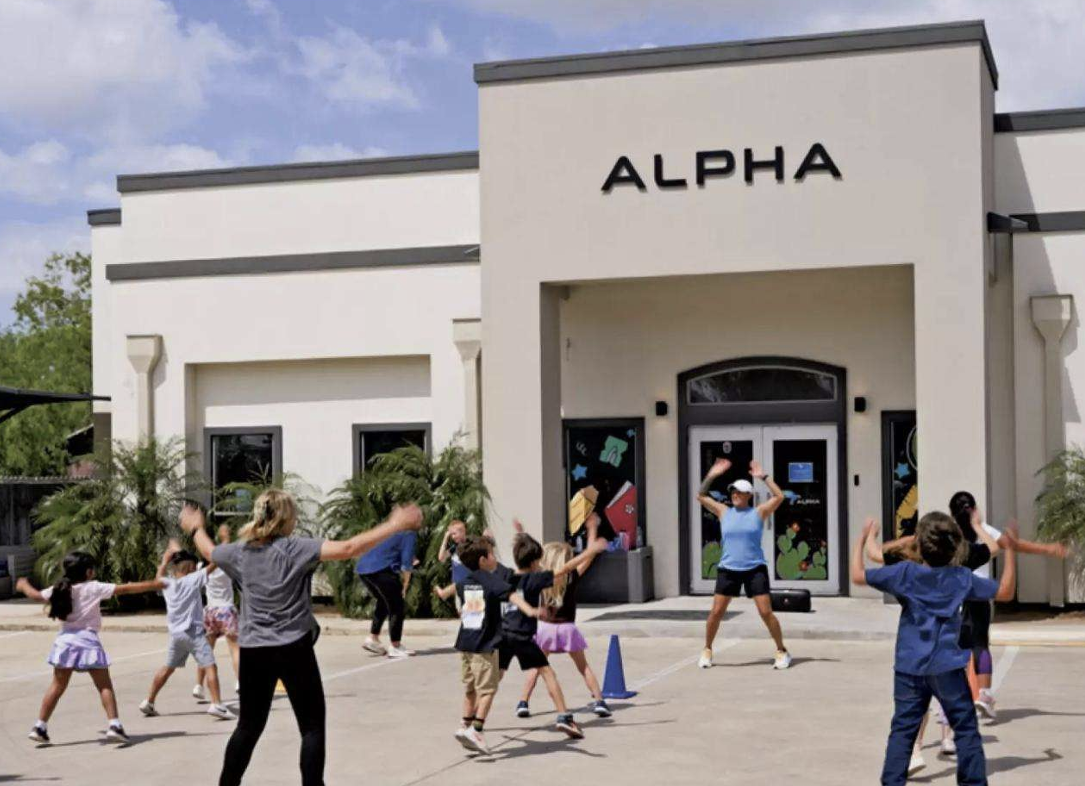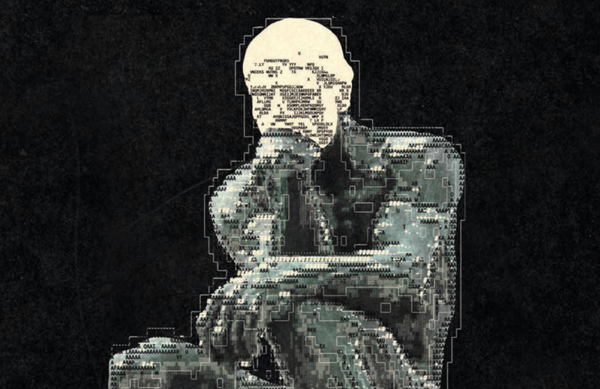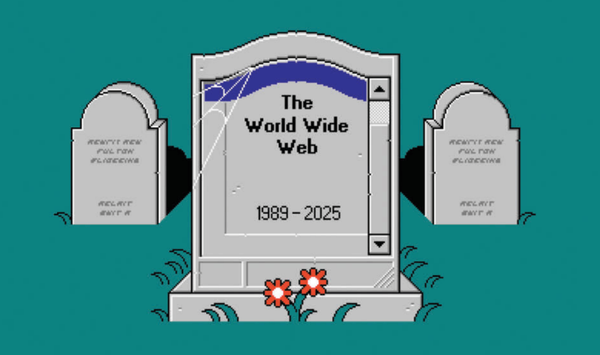美国的人工智能教室
在美国得克萨斯州一所名为“阿尔法”的私立学校,人工智能(AI)正被用于颠覆传统的教育模式。学生们每天仅用两小时通过个性化应用完成核心学科,余下时间则学习公共演讲、理财等生活技能。这一模式获得了部分家长甚至政府的关注,但也引发了关于“屏幕时间”和教师角色的新一轮讨论。

在美国得克萨斯州布朗斯维尔市(Brownsville),一所名为阿尔法学校(Alpha School)的私立教育机构,利用个性化的人工智能,让学生在短短两小时内就能完成一整天的核心学术课程。剩下的下午时光,孩子们则用来学习公共演讲、金融知识乃至如何骑自行车等非学术性的关键生活技能。
“这才是真正特别之处——人工智能正在帮助我们提升人类的智能,”该校联合创始人麦肯齐·普莱斯(MacKenzie Price)说。
两小时的“AI课堂”
走进阿尔法学校的幼儿园,独特的教学场景便映入眼帘。在欢快的流行音乐中,六岁的学生莎拉·席帕(Sarah Schipper)正与同学们合作一个逻辑游戏,他们通过在彩色圆点上跳跃来寻找正确的路径。即使有人走错,气氛也充满善意,一个女孩认为“失败会让我们成长”,另一个男孩则温和地建议大家用更协作、小声一点的方式沟通。

这项合作活动是学生们进入“两小时学习平台”前的热身。随后,他们会使用笔记本电脑,在数学、英语、科学等核心学科上进行30分钟一节的个性化学习。阿尔法学校称,这种方法能让学生掌握知识点的速度比传统方法快五倍。
争议与回响
莎拉认为,这种以AI为中心的模式将使她与众不同,而她并非唯一这么想的人。2024年4月23日,时任美国总统唐纳德·特朗普签署了一项行政令,旨在将AI融入全国K-12课堂,以培养未来一代的技术专长。

然而,这种高度依赖科技的模式也引发了关于“屏幕时间”的争议。校园负责人莫·斯温(Mo Swain)坦言,学校也面临着“家长不希望孩子一直使用科技产品”的压力。
与此同时,代表全美180万教育工作者的美国教师联合会(The American Federation of Teachers, AFT)也表达了审慎的看法。(译者注:美国教师联合会是美国最大的教师工会之一,在教育政策领域具有重要影响力,其立场通常代表传统公立教育体系的观点。)该联合会司库费德里克·英格拉姆(Fedrick Ingram)在一份声明中表示,“无论技术多么先进,它都无法取代人类教育者的关键作用”。
一位母亲与一所学校的诞生
阿尔法学校的诞生,源于创始人普莱斯女士自己女儿的经历。她回忆道,女儿曾对她说“学校太无聊了”。“两年半的时间,他们把一个天生热爱学校、充满好奇的孩子,变得热情全无,”普莱斯说,“我意识到问题不在于老师或某个学校,而是‘一个老师在教室前讲课’的这个模式失灵了。”这促使她探索利用适应性应用程序,为每个学生提供个性化的学习路径。
根据一些早期数据,这种模式似乎正在奏效。普莱斯曾透露,其班级的考试成绩位居全美“前2%”。斯温补充说,学生们的学业进展普遍“超越”了教育基准,他们参加的“学业进展评估”(Measures of Academic Progress)也与“共同核心标准”(Common Core standards)保持一致。(译者注:“共同核心标准”是美国一项旨在统一各州K-12阶段英语、数学等学科标准的教育计划,在全美引发过广泛讨论。)
未来的图景
如今,阿尔法学校已从得州扩展至佛罗里达,并计划进入纽约、加州等地。其学费从布朗斯维尔的一万美元到纽约的六万五千美元不等。
该校的成功也与科技巨头紧密相连。布朗斯维尔校区大约一半的学生是美国太空探索技术公司(SpaceX)员工的子女。(译者注:SpaceX是埃隆·马斯克(Elon Musk)创立的私人航天公司,其位于得州南部的发射基地被称为“星际基地”(Starbase),已成为当地一个重要的经济和科技中心。)
在阿尔法学校,一些学生甚至因其学习进展迅速,正尝试自行筹办一所新的高中。12岁的七年级学生萨凡纳·马雷罗(Savannah Marrero)正在为此研究法律要求,并得到了成年人的帮助。她意识到,帮助创办一所自己未来要上的私立学校,本身就是一次绝佳的“学徒”经历。“(学校的)向导从不会告诉你‘你做不成某件事’,”她说,“久而久之,你就培养出了那种心态。”
一些教育专家认为,阿尔法学校的模式及其初步成功,应当促使全美的公立学区进行反思。“我们必须为此寻求替代方案,”西雅图“重塑公共教育中心”(Center on Reinventing Public Education)主任罗宾·莱克(Robin Lake)说。【全文完】
原文分析
这是一篇很有意思的特稿,我们来一起分析一下。
首先,这篇文章的背景对于我们“川透社”的读者来说需要一些铺垫。它探讨的是人工智能(AI)在美国K-12教育中的前沿应用,这背后是美国公立与私立教育之争、以及科技巨头(如马斯克和他的SpaceX)深刻影响社会发展的宏大叙事。文章提及的特朗普政府行政令,则将这一教育实验与国家层面的科技竞争战略联系起来,这体现了典型的美国低语境文化特征,即习惯将具体事件置于清晰的政策和商业框架下进行讨论。此外,报道强调学生的个性化发展和师生间的平等协作,也反映了个人主义和低权力距离的文化维度。
从内容上看,这不属于硬新闻,而是一篇典型的特写新闻(Feature Story)。它没有采用“倒金字塔”结构,而是非常清晰地运用了“华尔街日报体”(Wall Street Journal Structure)。文章以一个具体的学校场景和人物故事(阿尔法学校的日常)作为“钩子”引人入胜,接着通过“核心段落”(Nut Graf)点明AI教育的核心模式与理念,然后将议题扩展到国家政策、行业争论等宏观层面,实现了“以小见大”的叙事效果,文体生动,富有故事性。
文章来源是《新闻周刊》(Newsweek),根据我们的教材资料,这家媒体的政治立场通常被认为是“中立”(Center)。尽管如此,这篇报道在框架选择上带有明显的亲创新(pro-innovation)倾向。它虽然加入了教师工会等方面的担忧以示平衡,但整体叙事更侧重于展现AI教育模式的成功之处和学生的积极体验,将之塑造为解决传统教育弊端的一种充满希望的方案。
总的来说,这是一篇结构经典、视角清晰的特稿。基于这个分析,我们接下来可以讨论如何进行编译。
编译策略
现在,我们来谈谈具体的编译策略。
鉴于这篇文章是一篇结构完整的特写新闻,且我们的目标读者可能对其中的一些美国本土化背景不甚了解,我建议采用单篇新闻编译的方式。这比单纯的“节译”更进一步,它允许我们在保留原文核心叙事和观点的同时,进行更灵活的调整,以适应“川透社”的读者需求。
具体的编译步骤可以这样规划:
首先,我们要保留原文“华尔街日报体”的叙事精髓。也就是保留那个以小见大的故事框架:从阿尔法学校(Alpha School)的具体场景和学生故事入手,引出AI教育这个核心议题,再拓展到更广阔的社会和政策层面,最后回归到人的变化上。这是文章最吸引人的地方,也是我们编译时必须守护的核心。
其次,在具体内容上进行取舍。我们可以适度精简关于特朗普行政令的冗长引文,以及一些对我们读者来说信息量不大的细节,比如部分人物的次要引语。这样做可以使文章更紧凑、重点更突出,避免读者在不熟悉的背景信息中迷失。
然后,也是“编译”的关键,我们需要主动为读者补充一些背景知识。例如,在文中适当解释美国教师工会(American Federation of Teachers)的角色或“共同核心标准”(Common Core standards)这类概念,可以帮助读者更好地理解报道中的争论点。这正是编译区别于普通翻译的价值所在。
优秀的编译不仅是信息的提炼,更是对原文风格和读者需求的精准把握。将“华尔街日报体”的叙事细节和人情味保留下来,并通过“译者注”为读者扫清理解障碍,正是提升编译稿质量的关键。
最后,在完成内容编译后,我们需要重新打磨文字,确保段落间的过渡自然流畅,并拟定一个更吸引中文读者的标题和导语/摘要。
下一步我们就可以动手进行编译了。
新闻原文
The AI Classroom Alpha School in Texas is redefining learning, using artificial intelligence to teach children core subjects in just two hours a day
THE 81.5 A.M. SCENE IN FRONT OF the school that sits on a residential street in Brownsville, Texas, just across the border with Mexico, looks much like any other school in that chaotic period before the morning bell. But Alpha School is no ordinary school. The private pre- K through eighth grade institution utilizes personalized artificial intelligence to teach an entire day of core academic lessons in just two hours. The students then spend their afternoons working on nonacademic critical life skills like public speaking, financial literacy or even how to ride a bike.
Staff-known as "guides," not teachers-say they strive to facilitate a sense of independence into each child while overseeing a supportive, nurturing environment like any other attentive teacher. The innovative approach at the South Texas campus, which opened in 2022, primarily aims to instill a love for learning into each young mind, co-founder MacKenzie Price told Newsweek."That's what's really special-artificial intelligence is allowing us to raise human intelligence."
A 2-Hour School Day?
Once inside, it becomes clearer that this school is unique. In kindergarten, the students show excitement as 6-year-old Sarah Schipper collaborates with classmates to solve a logic game. Students deduce the correct path by jumping on colored dots to find their way across six multi- hued rows. Wide smiles and upbeat pop music dominate the lively room while Sarah and her classmates encourage each other. But there's a sense of compassion for any wrong move. One girl suggested the cohort would "grow from losing," while another boy kindly proposed a more collaborative approach- along with less shouting.
The cooperative activity serves as a springboard into Alpha's Al- powered 2 Hour Learning platform, where students use laptops for 30-minute sessions in core academic subjects, including math, English, science and social studies. The personalized approach utilizes proprietary and third-party apps and allows students to master topics up to five times faster than traditional methods, Alpha claims.
Sarah said she wants to be a scientist and study "microscopic things" when she is older. When asked what separated Alpha from other schools, she said: "That we all work on computers. Not all schools work on computers, and this is a very special school. Maybe all the other schools everywhere can work on computers?"
Trump Weighs In
The precocious digital native said she believes Alpha's Al- centric formula will set her apart from her peers-and she's not alone. On April 23, President Donald Trump signed an executive order to integrate Al into K- 12 classrooms nationwide, aiming to cultivate tech- related expertise in future generations. The directive also establishes the White House Task Force on Al Education and requires Department of Education Secretary Linda McMahon to prioritize the use of Al in discretionary grant programs for teacher training.
"[Al] is rapidly transforming the modern world, driving innovation across industries, enhancing productivity and reshaping the way we live and work," the executive order reads."To ensure the United States remains a global leader in this technological revolution, we must provide our nation's youth with opportunities to cultivate the skills and understanding necessary to use and create the next generation of Al technology."
Trump's order also creates a "Presidential Artificial Intelligence Challenge," a competition for students and teachers to showcase their Al skills, and stresses the need for educators to fully embrace technology. The directive continues: "Professional development programs focused on Al education will empower educators to confidently guide students through this complex and evolving field." The order calls for the education and agriculture departments to allocate discretionary grant money and repurpose other training initiatives for the Al expansion.
The Screen Time Question
Back at Alpha, Sarah praised her guides, who largely act as facilitators rather than traditional instructors. "We believe kids are limitless and we provide really high standards," Price said." And we provide really high levels of support because our teachers have time to do that. That's what's really special- artificial intelligence is allowing us to raise human intelligence." "They don't tell me the answers," Sarah said of how her guides interact with her during the two-hour learning sprints." They just give me resources."
Mo Swain, who serves as campus lead and interim director at Alpha Brownsville, said the vast majority of the school's roughly 60 students complete requisite lessons during their accelerated learning sessions, negating the need for homework or more screen time in most cases. Pre-K students aren't allowed to take their laptops home, she said." Parents don't want their kids on technology all the time," she added.
Swain's comments reflect the tension at the heart of an experiment like Alpha. Schools across the country are banning devices. But such measures do not address the school- issued devices increasingly common in classrooms. Just a "handful" of parents at Alpha this year have voiced concerns about students spending too much time on their laptops after the school day ends, Swain said. "But kids, when they really want something or they're really working hard to achieve that goal, they'll go home and say, 'I have to get this done," Swain said." Because they really want to- but our parents know they don't have to."
Cultivating that motivation is a big part of Alpha's mission. And based on some early data, it's working. Co-founder Price told Fox News in March that Alpha classes were in the "top 2 percent" of test scores in the country. Students are universally "surpassing" education benchmarks and take Northwest Evaluation Association's Measures of Academic Progress assessments that are aligned with common core standards, Swain added. "They're learning the same things you could expect to learn in a public school or a different private school," she said. "They're just learning it in a different way and at a faster pace."
Alpha's Origin Story
Price, who studied psychology at Stanford University, launched the framework for Alpha in Austin, Texas, a decade ago. The mother of two said her zoned school district couldn't meet the needs of her daughters, particularly regarding "personalized attention." "The teacher in front of the class room model is required to teach a certain curriculum kind of, you know, to the middle," said Price, adding one of her daughters particularly suffered.
"She looked at me and said, 'School is so boring." Price recalled."In two-and-a- half years, they had taken a child who was tailor- made to love school and be curious and interested, and they wiped away that passion. And I realized it wasn't about the teachers or that school, or moving from a public to a private school. It was the model of a teacher in front of a classroom that wasn't working."
Price said she soon realized adaptive apps could be the key to providing a personalized process to each student, combined with regular surveys and interactions with guides. "Over the next 11 years, this has grown into numerous schools all based on the idea that number one, kids should love school," Price said. "And kids can learn twice as fast in only a couple of hours a day by getting this one- to-one, mastery- based tutoring experience."
Alpha's expansion plans go beyond Texas. Alpha ventured into Florida last year, launching a campus in Miami, while additional locations in Tampa, Palm Beach and Orlando are expected to open this fall. Job postings for guides at some of those locations list a starting salary of $100,000.Alpha also intends to grow its footprint in Texas, opening schools in fall 2025 in Houston and Fort Worth, as well as outposts in Phoenix, New York City and Santa Barbara, California. Tuition ranges from $10,000 (in Brownsville) to $65,000 in New York, according to its website.
The SpaceX Connection
Roughly half of Alpha Brownsville's students are children of SpaceX employees who work at the company's headquarters, about 25 miles east. Billionaire Elon Musk is trying to formally incorporate the Cameron County community, known as Boca Chica Village, as Starbase, Texas. The SpaceX investment has helped boost the economy around Brownsville, which is home to about 185,000 people and among the poorer parts of Texas. More than a quarter of Brownsville residents live below the poverty line, about twice the national average. Alpha says it provides need- based assistance in special cases to offset the $10,000 tuition.
The American Federation of Teachers, the union that represents 1.8 million pre- K through 12th grade educators, said Al can be a "powerful tool" in classrooms so long as it is used safely and thoughtfully."Yet no matter how advanced, it cannot replace the critical role of human educators," AFT Secretary- Treasurer Fedrick Ingram told Newsweek in a statement."Real, consequential learning only happens when teachers and students collaborate in an atmosphere of mutual trust, charting a learning path forward together."
Ingram acknowledged Al is "here to stay," but said it can only reach its full potential under the guidance of trained educators who know how best to integrate the technology into their classrooms.
Some students at Alpha Brownsville are so pleased with their success and progress from past public-school environments that they're working to open a high school, effectively attempting to fill their own need. Seventh-grader Savannah Marrero, now in her third year at the school, wants to launch the new high school. "Right now, the Rio Grande Valley, Brownsville and all the cities surrounding it are lagging behind in education in the U.S., so students going from a fast-paced environment like Alpha and then having to cut it off and go to a traditional school doesn't make sense," she said. "So that's why I want to continue it."
Savannah would attend the public high school in Brownsville if her vision doesn't become reality, but she's currently researching legal requirements and previously visited Alpha's high school in Austin as part of her plan. "Obviously, since I'm 12, I'm not going to know everything about financial stuff and funding and things like that, so I have adults to help me," she said. Savannah isn't sure about her ultimate career choice, but thinks about owning a business one day. Helping to launch a private school that she would ultimately attend would be a fitting apprenticeship, she realized as she was speaking to Newsweek.
The seventh-grader also said she feels newly empowered in a way she didn't earlier in her education. "The guides will never tell you that you can't do something," she said. "So over time, you develop that mindset and the environment from day one is you can do anything if you set your mind to it. That's where I started to learn motivation."
Al and the Role of Teachers
Some experts said Alpha's condensed, tech- heavy model and the early successes it is showing should prompt discussions in public districts across the country. "Take a look at how they're delivering core instruction, whether it could be reconfigured and delivered more efficiently," said Robin Lake, director of the Seattle-based Center on Reinventing Public Education. Lake said many public school districts should take a critical look at how teachers use their time, and think of how to use electronic learning tools more coherently and efficiently. "We have to question that and think differently, especially as dollars get really tight for a lot of public schools and outcomes are not increasing," Lake told Newsweek. "We've got to look for alternatives."





